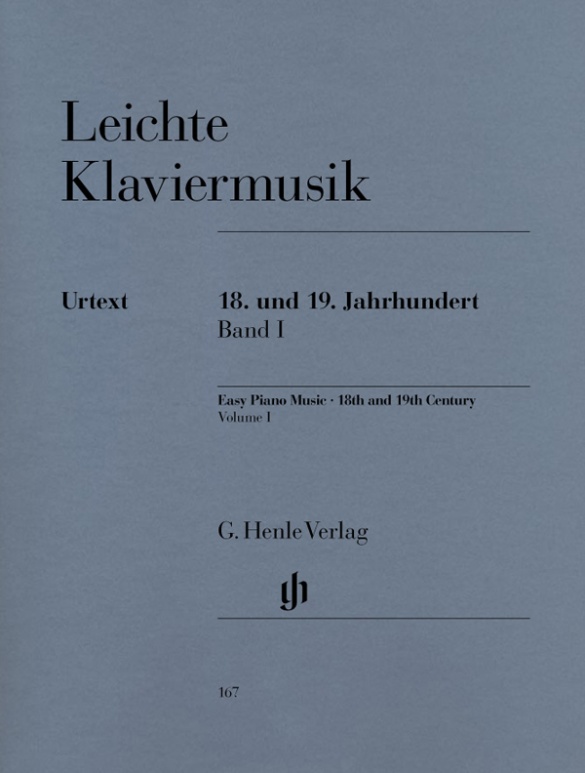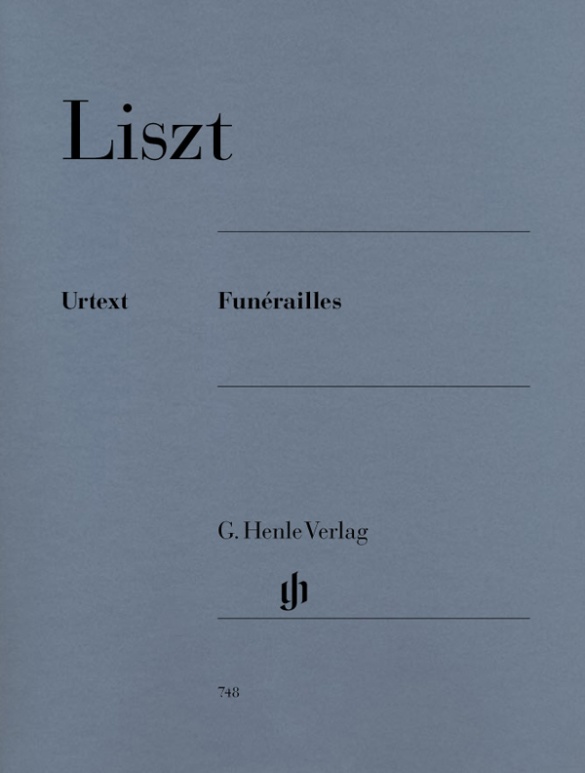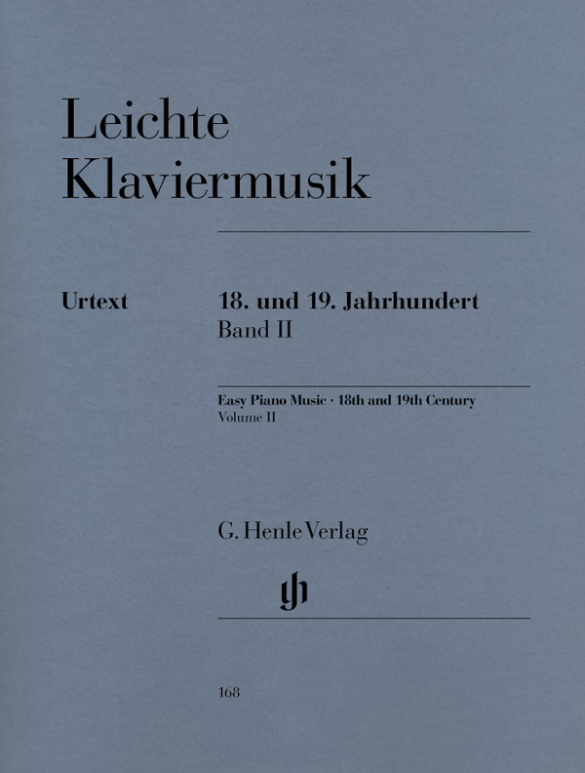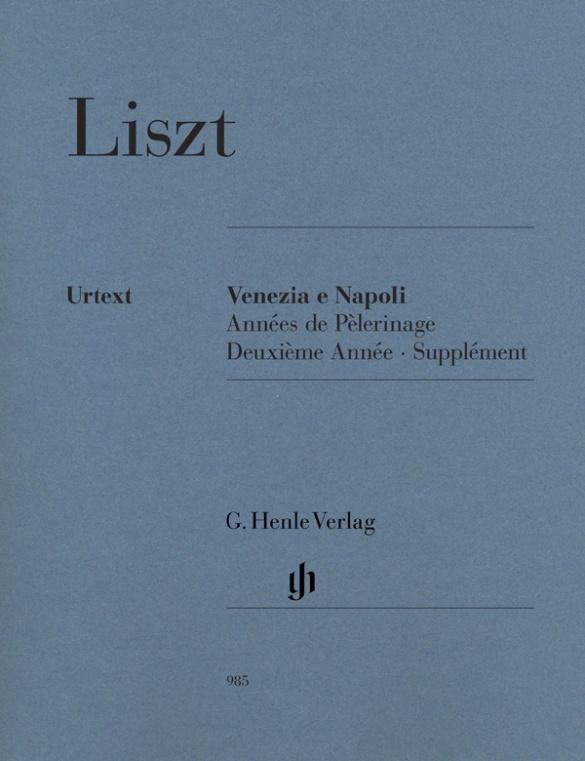

Franz Liszt
Venezia e Napoli
Quelque trois ans après la parution du deuxième volume de ses «Années de Pèlerinage» (Italie), Liszt ajoute encore une annexe à ce recueil: le tryptique «Venezia e Napoli». À cette fin il reprend deux des quatre morceaux déjà composés en 1840 à la suite d’un voyage en Italie et les groupe pour une adaptation du chant de gondelier «Nessun maggior dolore» de l’opéra «Otello» de Rossini. En particulier la «Tarantella» endiablée qui clôt les deux pièces plutôt vocales «Gondoliera» et «Canzone» ne peut plus être exclue du répertoire pour piano. La publication de ce supplément complète la série des oeuvres rattachées aux «Années de Pèlerinage», publiées en édition Urtext Henle.
CONTENU/DÉTAILS
(Explanation)
CONCERNANT LE COMPOSITEUR
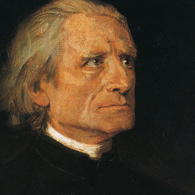
Franz Liszt
Le célèbre virtuose du piano du XIXe s. est considéré comme l’une des figures d’artiste et de compositeur les plus influentes de ce que l’on appelle la Nouvelle École allemande (avec Berlioz et Wagner). Son immense œuvre musicale comprend au premier plan des œuvres pour piano seul, parmi lesquelles de nombreuses transcriptions; il développe en outre le poème dit symphonique. Ses œuvres chorales sacrées et profanes ainsi que ses mélodies sont tout aussi importantes.
| 1811 | Né le 22 octobre à Doborján (auj. Raiding en Autriche), fils d’un fonctionnaire au service du prince Esterházy. Premiers cours de piano auprès de son père, premiers essais de composition, première audition publique à l’âge de 9 ans. |
| 1822 | La famille s’installe à Vienne. Suit les cours de Carl Czerny et d’Antonio Salieri. |
| 1823 | La famille s’installe à Paris. Cours de composition chez Ferdinando Paër et Antonín Reicha (1826). Se produit dans des salons, concerts. |
| 1824–27 | Tournées de concert en France, en Angleterre et en Suisse. Composition de paraphrases d’opéras pour piano. |
| 1830 | Rencontre avec Berlioz, lectures et études. Il devient l’un des pianistes et professeurs de piano les plus appréciés de la société parisienne. |
| 1835 | Il s’installe en Suisse avec la comtesse Marie d’Agoult. C’est là que naît Blandine-Rachel leur premier enfant. Par ailleurs, il continue à donner des concerts à Paris. |
| à partir de 1839 | Incessantes tournées de concert à travers toute l’Europe. |
| à partir de 1847 | Poèmes symphoniques, entre autres n° 2 «Tasso: lamento e trionfo», n° 1 «Ce qu‘on entend sur la montagne», «Faust-Symphonie», «Dante-Symphonie» ainsi que «La Bataille des Huns» [n° 11]. |
| 1848–61 | Maître de chapelle à Weimar; il s’engage pour la musique «progressiste» (Wagner, Schumann, Berlioz). |
| 1857–62 | Oratorio «La Légende de sainte Élisabeth». |
| 1861–68 | Séjour à Rome. |
| 1865 | Reçoit les Ordres mineurs. |
| 1866–72 | Oratorio «Christus». |
| 1871 | |
| Nommé conseiller à la cour de Hongrie; il vit à Rome, Weimar et Budapest. | 1886 |
About the Authors

Ernst Herttrich (Editeur)
Dr. Ernst Herttrich, born in 1942 in Würzburg, read musicology, history, German and theology at the universities in Würzburg and Cologne. In 1970 he earned his doctorate in Würzburg with a study of the expression of melancholy in the music of Mozart.
From 1970 to 1990 he was an editor at G. Henle Publishers in Munich, after which he was Head of the Beethoven Complete Edition for over 15 years. In 1999 he took over as Head of the Beethoven-Haus Publishers, and from 2001 was made Head of the Beethoven-Archiv, the research centre at the Beethoven-Haus.
He has been a visiting professor at Meiji Gakuin University in Tokyo and has undertaken several lecture tours both there and to Kyoto. His research interests include source studies, editorial techniques and music history. Herttrich’s publications include “Beethoven. Liederkreis an die ferne Geliebte” (Bonn 1999) and “Ludwig van Beethoven. Biographie in Bildern” (Bonn, 2000). Herttrich has edited over 100 Urtext editions for G. Henle Publishers.

Klaus Schilde (Doigtés)
Prof. Klaus Schilde, born in 1926, spent his childhood in Dresden. There he was greatly influenced by Walter Engel, who taught him the piano (Kodaly method), composition and violin. From 1946–1948 he studied at the music conservatory in Leipzig with Hugo Steurer. After moving to the west in 1952 he studied with Walter Gieseking and Edwin Fischer, as well as with Marguerite Long, Lucette Descaves and Nadia Boulanger in Paris.
Schilde won numerous prizes. From 1947 onwards he gave concerts as a soloist and chamber musician on almost every single continent with renowned orchestras. He taught at the music conservatories in East Berlin Detmold, West Berlin, Munich, Tokyo (Geidai) and Weimar. From 1988–1991 he was President of the Staatliche Hochschule für Musik und Theater in Munich, where he also taught for decades as a professor. There are numerous radio and television broadcasts with Klaus Schilde as well as CD recordings. Schilde has contributed fingerings to almost 100 Henle Urtext editions.
Prof. Klaus Schilde passed away on 10 December, 2020.
Informations sur la sécurité du produit

G. Henle Verlag
Vous trouverez ici des informations sur le fabricant du produit.G. Henle Verlag e.K.
Forstenrieder Allee 122
81476 München
Allemagne
info@henle.de
www.henle.com
De Liszt-uitgaves van Henle zijn altijd een wonder van overzichtelijkheid, zeker gezien de hoeveelheid noten. Wat daar sterk aan bijdraagt is dat de versierende coloraturen in een kleiner notenbeeld worden gestoken, zodat de structuur van de compositie niet wordt ondergesneeuwd, maar helder overeind blijft.
Pianowereld, 2012Pianists and students of Liszt can now rejoice that with this publication, the complete Années de Pèlerinage in four volumes is now available in a reliable 'Urtext' from Henle.
EPTA Piano Professional Spring, 2012recommandations
autogenerated_cross_selling
Autres éditions de ce titre
Autres éditions de ce titre


